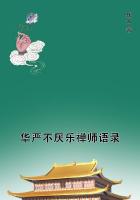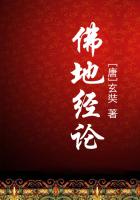It may not be entirely beside the point to note that in point of time this curious reversion seems to coincide with the culmination of a certain vogue of atavistic sentiment and tradition in other directions also. The wave of reversion seems to have received its initial impulse in the psychologically disintegrating effects of the Civil War. Habituation to war entails a body of predatory habits of thought, whereby clannishness in some measure replaces the sense of solidarity, and a sense of invidious distinction supplants the impulse to equitable, everyday serviceability. As an outcome of the cumulative action of these factors, the generation which follows a season of war is apt to witness a rehabilitation of the element of status, both in its social life and in its scheme of devout observances and other symbolic or ceremonial forms. Throughout the eighties, and less plainly traceable through the seventies also, there was perceptible a gradually advancing wave of sentiment favoring quasi-predatory business habits, insistence on status, anthropomorphi**, and conservatism generally. The more direct and unmediated of these expressions of the barbarian temperament, such as the recrudescence of outlawry and the spectacular quasi-predatory careers of fraud run by certain "captains of industry", came to a head earlier and were appreciably on the decline by the close of the seventies. The recrudescence of anthropomorphic sentiment also seems to have passed its most acute stage before the close of the eighties. But the learned ritual and paraphernalia here spoken of are a still remoter and more recondite expression of the barbarian animistic sense; and these, therefore, gained vogue and elaboration more slowly and reached their most effective development at a still later date. There is reason to believe that the culmination is now already past. Except for the new impetus given by a new war experience, and except for the support which the growth of a wealthy class affords to all ritual, and especially to whatever ceremonial is wasteful and pointedly suggests gradations of status, it is probable that the late improvements and augmentation of scholastic insignia and ceremonial would gradually decline. But while it may be true that the cap and gown, and the more strenuous observance of scholastic proprieties which came with them, were floated in on this post-bellum tidal wave of reversion to barbarism, it is also no doubt true that such a ritualistic reversion could not have been effected in the college scheme of life until the accumulation of wealth in the hands of a propertied class had gone far enough to afford the requisite pecuniary ground for a movement which should bring the colleges of the country up to the leisure-class requirements in the higher learning. The adoption of the cap and gown is one of the striking atavistic features of modern college life, and at the same time it marks the fact that these colleges have definitely become leisure-class establishments, either in actual achievement or in aspiration.
As further evidence of the close relation between the educational system and the cultural standards of the community, it may be remarked that there is some tendency latterly to substitute the captain of industry in place of the priest, as the head of seminaries of the higher learning. The substitution is by no means complete or unequivocal. Those heads of institutions are best accepted who combine the sacerdotal office with a high degree of pecuniary efficiency. There is a similar but less pronounced tendency to intrust the work of instruction in the higher learning to men of some pecuniary qualification.
Administrative ability and skill in advertising the enterprise count for rather more than they once did, as qualifications for the work of teaching. This applies especially in those sciences that have most to do with the everyday facts of life, and it is particularly true of schools in the economically single-minded communities. This partial substitution of pecuniary for sacerdotal efficiency is a concomitant of the modern transition from conspicuous leisure to conspicuous consumption, as the chief means of reputability. The correlation of the two facts is probably clear without further elaboration.
The attitude of the schools and of the learned class towards the education of women serves to show in what manner and to what extent learning has departed from its ancient station of priestly and leisure-class prerogatives, and it indicates also what approach has been made by the truly learned to the modern, economic or industrial, matter-of-fact standpoint. The higher schools and the learned professions were until recently tabu to the women. These establishments were from the outset, and have in great measure continued to be, devoted to the education of the priestly and leisure classes.















